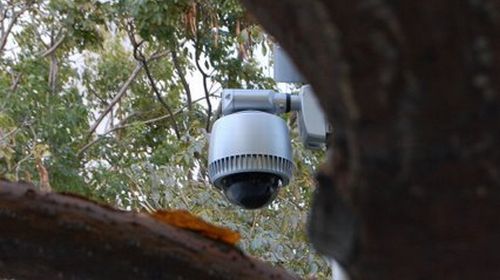
Here are some links that have caught our eye recently:
The FBI’s “Next Generation Identification” biometrics database is starting to plan for the inclusion of iris scans. Iris scans raise more issues than some other biometrics (such as fingerprints) because they can be used at a distance without a subject’s participation, permission, or even knowledge. Hand-held iris scanners are being sold to police around the country for identification uses. We were assured in a meeting with the FBI last year that biometric scans in situations such as traffic stops would not be used to enroll individuals into the database, just to check their identity.
The FBI has been busy in other areas as well. ProPublica has a nice clear explanatory Q&A on the recent disclosure that cell phone companies responded to 1.3 million requests for data from law enforcement last year. (Our take on that story is here.)
Speaking of mobile phones, a public opinion study by the Berkeley Center for Law and Technology finds that “Americans overwhelmingly consider information stored on their phones to be private, and strongly reject systems that would rely on…tracking their locations.” In fact, almost half (46%) of respondents said that mobile phone providers should not retain location information at all—a finding we are certainly glad to see, in the wake of our letter last year asking carriers not to retain location data. Along those lines, Andy Greenberg at Forbes points out “Five Ways Wireless Carriers Could Reign In the Government’s Surveillance Of Your Phone”—top among them being, “store less data, and delete it earlier.” Let’s hope that pressure continues to build on the carriers to stop retaining location data.
The Berkeley survey also found, in contrast to common assumption but in line with previous findings, that the young care at least as much about privacy as older people. As ars technica points out, overall the study reveals a gulf between expectations and reality when it comes to mobile phones.
Another poll, this one on cybersecurity by United Technologies and the National Journal, found that “Privacy Trumps Cybersecurity,” as the National Journal headlined it. Almost two-thirds of Americans (63%) agreed that government and business “should not be allowed to share [security] data because it will hurt privacy and civil liberties.”
In a continuation of the awkwardly named and constitutionally dubious “Operation In Our Sites,” federal officials this week seized the domain names of 70 more web sites suspected of trafficking in counterfeit merchandise.
A petition to President Obama asking him to require the TSA to comply with a court order by conducting a public notice-and-comment rulemaking on airport body scanners has gathered over 11,000 signatures so far. The petition (started by CATO) is posted on the White House’s “We the People” create-your-own-petition site. Everyone should sign it.
A VA hospital in Florida secretly installed a camera in the hospital room of a patient, the Tampa Bay Times reported. Hospital officials were unapologetic, denying the camera was secret and saying it was for routine patient monitoring. However, the family of the patient, who had suffered severe brain damage while in the hospital, was considering a malpractice lawsuit when the camera was installed. In addition, the camera in question is the only one on that entire wing of the hospital, the patient and his family were not notified of its installation, and the camera that was installed had the appearance of a smoke detector and is described by its manufacturer as a “Smoke Detector Covert Camera.”
On the subject of video surveillance, this piece in Alternet discusses the implications of Google Glasses for social surveillance.
Finally, on the net neutrality front, Verizon has claimed in court that it has the right to “editorial discretion” over all the content that flows over its network, as Simon Maloy at Media Matters discusses. Broadband providers sometimes create content, the company argues, and “they also transmit the speech of others…. In performing these functions, broadband providers possess ‘editorial discretion,” in the same way that “a newspaper is entitled to decide which content to publish and where.” Thanks, Verizon, for helping us to clarify the issues at stake in the net neutrality debate. Violet Blue at CNET also posts on this. As we’ve long said, the First Amendment certainly protects the carriers when they provide their own video feeds, web pages or press releases—but in their role of controlling the crucial public wires across which everyone else’s speech flows, they should be subject to common carrier principles.



